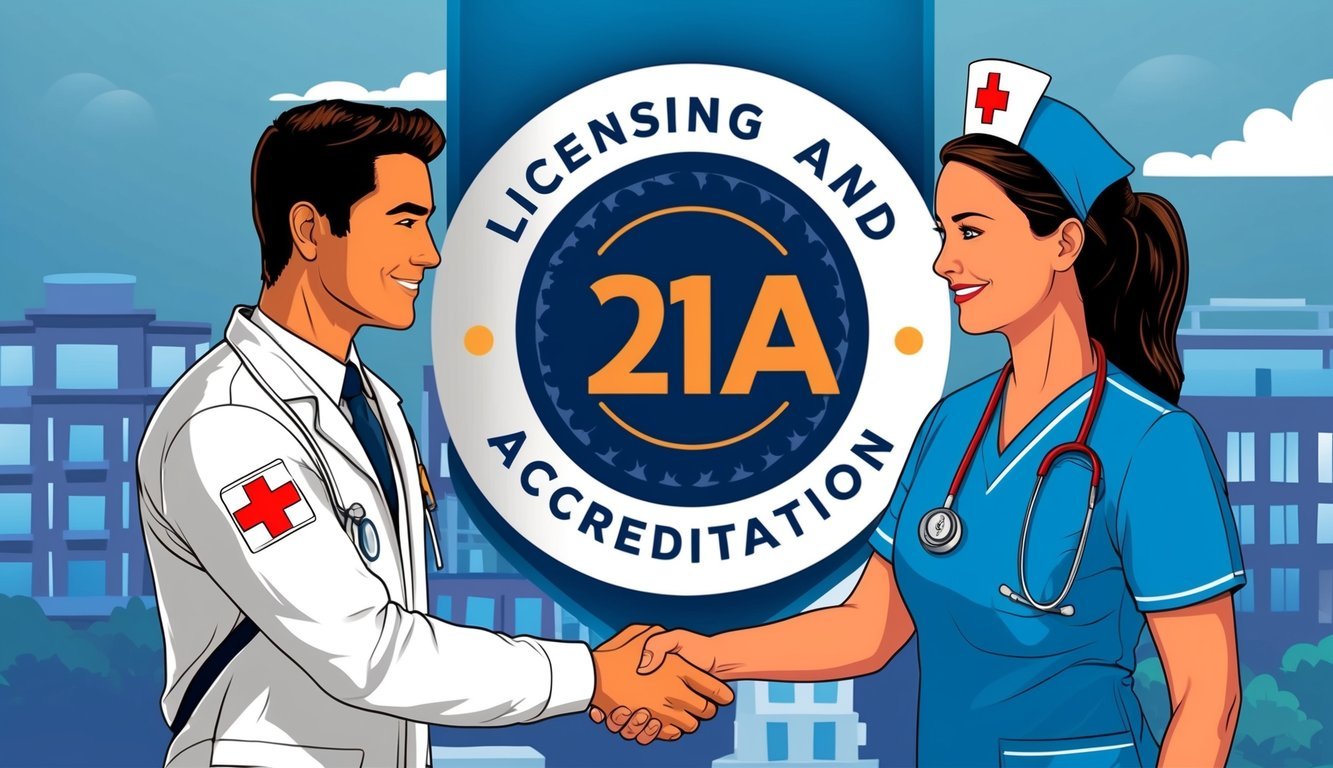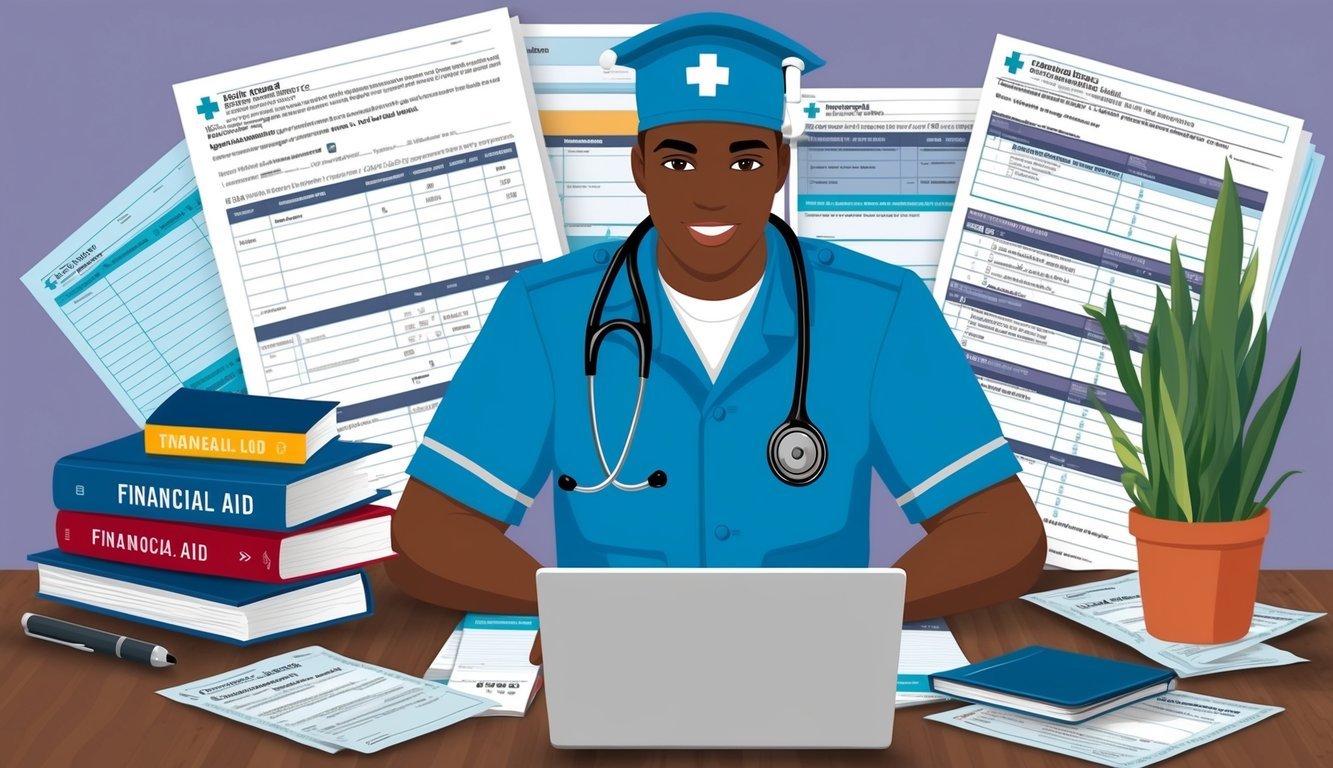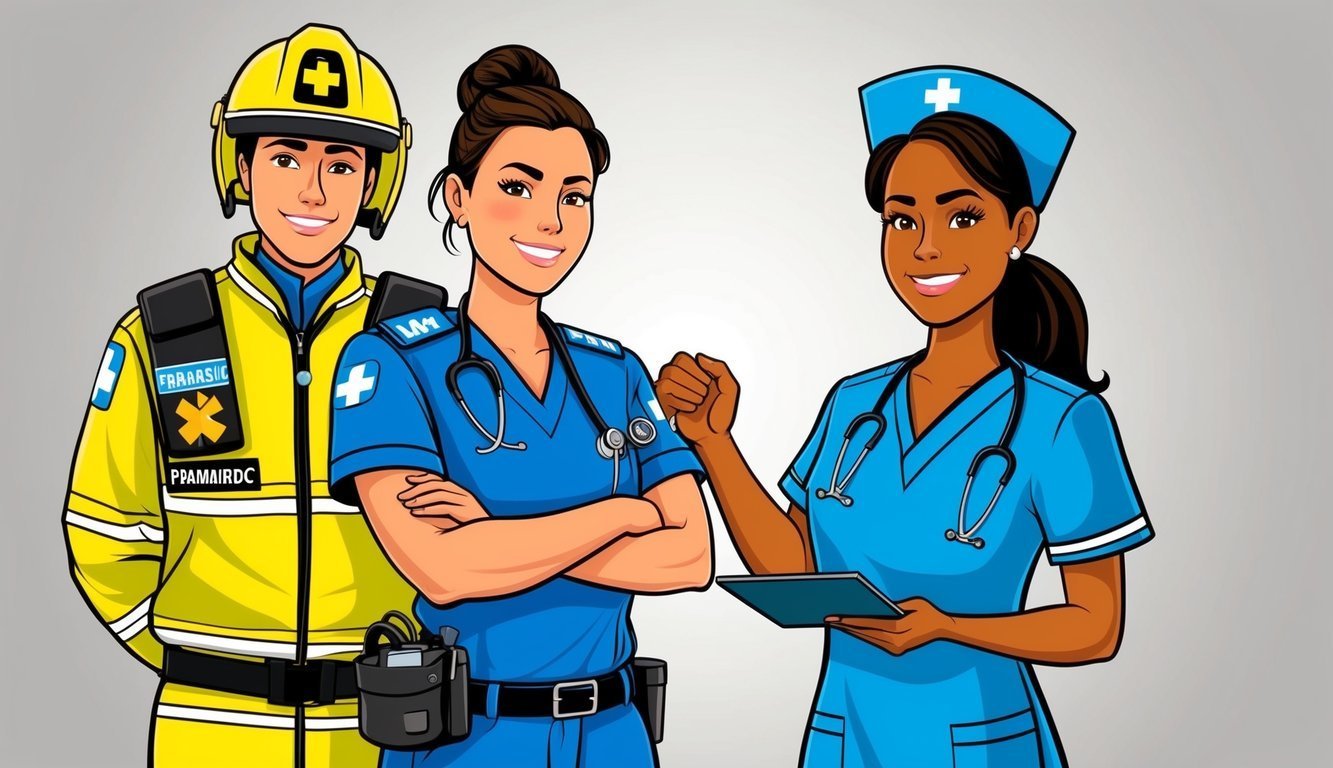Transitioning from a paramedic to a registered nurse (RN) can be an exciting opportunity for career advancement.
The paramedic to RN bridge program allows you to build on your existing medical knowledge and experience while gaining the skills needed for nursing.
This pathway not only enhances your clinical abilities but also opens doors to new job prospects and higher earning potential.
These bridge programs are designed with busy healthcare professionals in mind, offering flexible online options that fit your schedule.
You can expect to find a variety of programs that vary in length, tuition costs, and curriculum focus, allowing you to choose one that aligns with your career goals.
By enrolling in a reputable program, you can efficiently transition to this rewarding role, ensuring that you are well-prepared to meet the demands of nursing.
As you explore your options, consider comparing the available paramedic to RN bridge programs to find the best fit for your needs.
Resources like Nurse.org and RegisteredNursing.org can provide insights into program requirements, costs, and benefits that can assist you in making an informed decision.
Overview of Paramedic to RN Bridge Programs
Paramedic to RN bridge programs are designed to facilitate the transition from emergency medical services to nursing.
These programs recognize the skills that paramedics possess and build upon them to prepare you for a registered nursing career.
Defining the Bridge Program
A paramedic to RN bridge program serves as a pathway for licensed paramedics to obtain their Registered Nurse (RN) credentials.
These programs typically offer a curriculum that combines theoretical knowledge with practical nursing skills.
You can expect courses in nursing fundamentals, pharmacology, and patient care.
Some programs may incorporate advanced subjects like nursing leadership and healthcare policy.
Clinical practice hours are also a critical component, allowing you to gain hands-on experience in various healthcare settings.
These bridge programs vary in length; many can be completed in 1-2 years, while some accelerated programs may be finished in about nine months.
Each program has specific admission requirements, so you should review these before applying.
Benefits of Advancing from Paramedic to RN
Transitioning from a paramedic role to a registered nurse offers numerous advantages. Higher earning potential is a significant benefit, as RN salaries typically range from $53,410 to $116,230 annually.
This is a considerable increase compared to paramedic salaries, which average between $24,650 and $62,150.
Other benefits include job stability and career advancement opportunities.
Registered nursing is a growing field with a demand for qualified professionals.
You can also explore specialized areas like critical care, pediatrics, or emergency nursing.
Additionally, the flexible scheduling of many online bridge programs allows you to balance work and studies effectively.
This convenience supports your professional and personal commitments, making the transition more manageable.
For more information on available programs, consider visiting RN Careers or Nurse.org.
Educational Pathways
When considering your transition from paramedic to registered nurse (RN), two primary educational pathways are available.
Each path offers unique advantages, depending on your career goals and preferences.
From Paramedic to Associate Degree in Nursing
One common route is obtaining an Associate Degree in Nursing (ADN).
This program typically lasts 2 to 3 years and provides the foundational skills necessary to become an RN.
You can expect to engage in both classroom learning and hands-on clinical practice.
Many institutions offer ADN programs tailored for paramedics, allowing you to leverage your existing medical knowledge.
For instance, Albany State University has a bridge program designed specifically for healthcare professionals, including paramedics.
Upon completion, you will be eligible to take the NCLEX-RN exam and can enter the workforce as a registered nurse, often earning a competitive salary compared to your previous role.
Transitioning to Bachelor of Science in Nursing
Alternatively, you might pursue a Bachelor of Science in Nursing (BSN).
This option generally requires about 4 years of study but prepares you for a broader range of nursing roles.
A BSN often opens doors to leadership positions and specialized fields.
Programs such as paramedic-to-BSN bridges are available, allowing you to apply your paramedic experience towards your degree.
The courses may include advanced nursing theory and research, enhancing your critical thinking and clinical skills.
With a BSN, you can expect higher earning potential and increased job opportunities in various settings.
BSN graduates are becoming the industry standard, making this path increasingly sought after.
| Pathway | Duration | Earnings Potential |
|---|---|---|
| Associate Degree in Nursing | 2-3 years | $53,410 – $116,230 |
| Bachelor of Science in Nursing | 4 years | $75,330 and higher |
Curriculum and Clinical Requirements

In transitioning from a paramedic to a registered nurse, the curriculum is structured to ensure you gain essential knowledge and skills.
The program involves core nursing courses and specialty training that enhance your clinical expertise.
Core Nursing Courses
Core nursing courses are pivotal in providing you with a solid foundation in nursing theory and practice.
These typically cover subjects such as:
- Nursing Theory: Understanding the principles that guide nursing practice.
- Pharmacology: Learning the effects and uses of medications in patient care.
- Health Assessment: Developing skills to assess and identify patient needs.
You will also participate in clinical training, which includes hands-on experiences in various healthcare settings.
Most programs require a minimum of 500 clinical hours, allowing you to apply what you’ve learned in real-world scenarios.
This exposure is crucial for developing competencies in patient care and decision-making.
Specialty Training and Patient Care
Specialty training focuses on specific areas of nursing practice, which may include pediatrics, geriatrics, or critical care.
You will engage in specialized coursework that includes:
- Advanced Patient Care Techniques: Learning procedures and protocols for complex patient scenarios.
- Clinical Leadership: Developing skills to lead healthcare teams effectively.
In addition to the theoretical components, clinical requirements often necessitate additional hours in specialty settings.
This training ensures you can deliver safe and effective care tailored to the diverse needs of patients.
Engaging in these areas will prepare you to meet various challenges in your nursing career while enhancing your clinical proficiency.
Licensing and Accreditation

Understanding the licensing and accreditation processes is crucial for your transition from paramedic to registered nurse.
These components ensure you meet professional standards and are prepared for the NCLEX-RN exam, which is essential for obtaining your RN licensure.
Preparation for the NCLEX-RN Exam
To practice as a registered nurse, you must pass the NCLEX-RN exam.
Many paramedic to RN bridge programs prepare you for this critical step.
The exam tests your knowledge and skills across various domains, including:
- Safe and Effective Care Environment
- Health Promotion and Maintenance
- Psychosocial Integrity
- Physiological Integrity
Typically, accredited programs provide resources and practice exams that mirror the NCLEX-RN format.
Enrolling in a program that offers comprehensive NCLEX preparation can significantly enhance your chances of success.
Familiarizing yourself with the exam’s content and structure will help you feel more confident as you approach this requirement.
Understanding Program Accreditation
Accreditation ensures that your bridge program meets established educational standards.
Programs accredited by recognized bodies, such as the Commission on Collegiate Nursing Education (CCNE) or the Accreditation Commission for Education in Nursing (ACEN), are more likely to provide quality education.
Attending an accredited program also impacts your eligibility for RN licensure.
Many states require graduation from an accredited institution to sit for the NCLEX-RN exam.
Ensure your chosen program’s accreditation status aligns with licensing requirements in your state, facilitating a smoother transition into the nursing workforce.
Financial Aid and Scholarships

Transitioning from a paramedic to a registered nurse (RN) can be financially demanding.
Fortunately, various financial aid options and scholarships are available to help ease the burden.
Types of Financial Aid
- Federal and State Grants: These do not require repayment and can significantly reduce your tuition costs.
- Scholarships: Numerous organizations provide scholarships specifically for paramedics advancing to nursing. Research local healthcare organizations for opportunities.
Example Scholarships
| Scholarship Name | Award Amount | Eligibility Criteria |
|---|---|---|
| Health Resources and Services Admin | Varies | Healthcare students, including paramedics |
| American Nurses Association Scholarship | Up to $2,000 | Nursing students demonstrating financial need |
| Local Healthcare Organizations | Varies | Often based on community service or financial need |
Application Tips
- Start Early: You should begin researching and applying for scholarships as soon as possible.
- Gather Documentation: Make sure you are prepared to provide proof of your paramedic certification and financial need.
Consider online resources for additional information on financial aid options.
Websites like RegisteredNursing.org can guide you through the process and offer scholarship lists.
Using these avenues can help you manage education costs while you pursue your RN degree.

